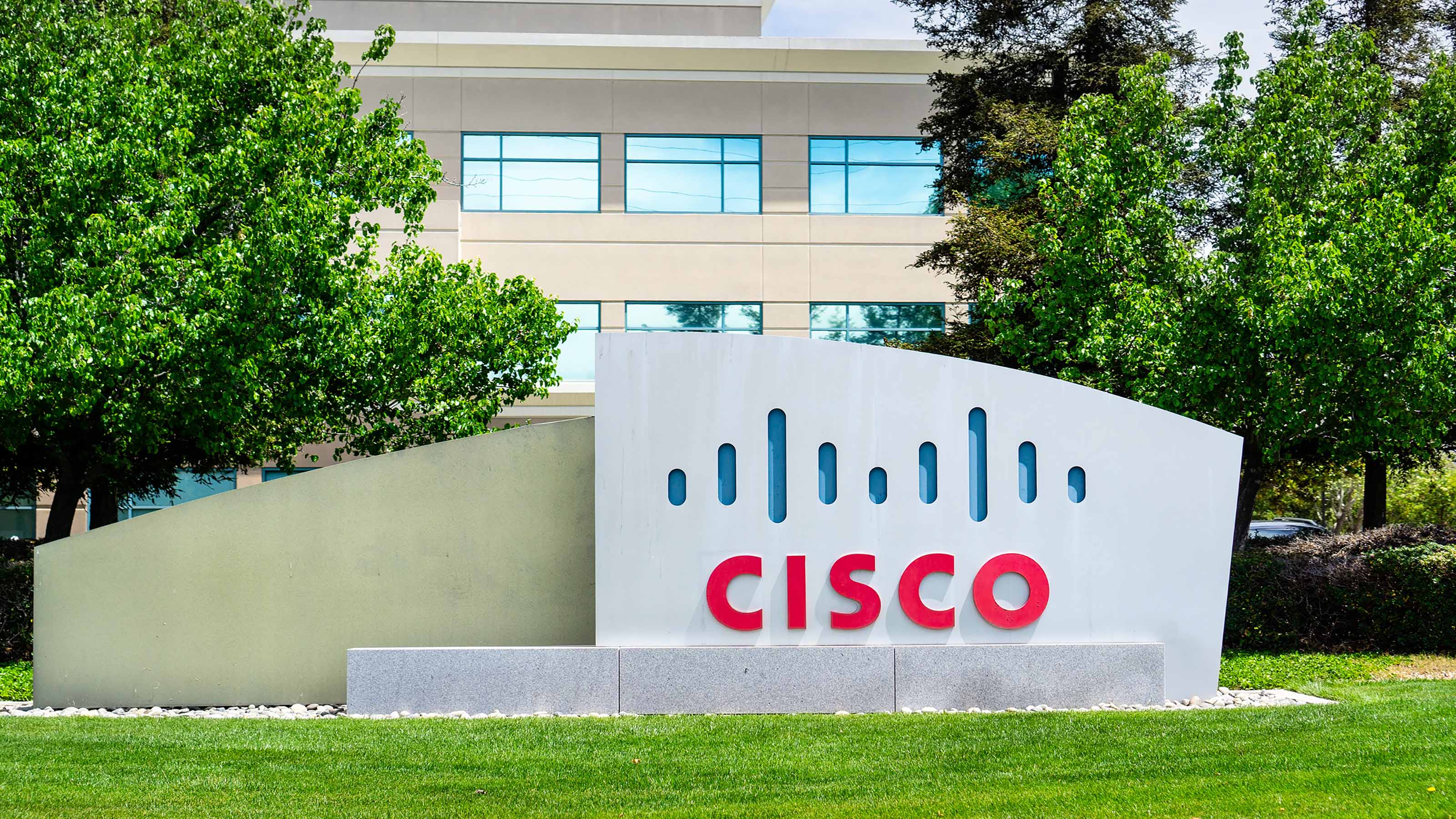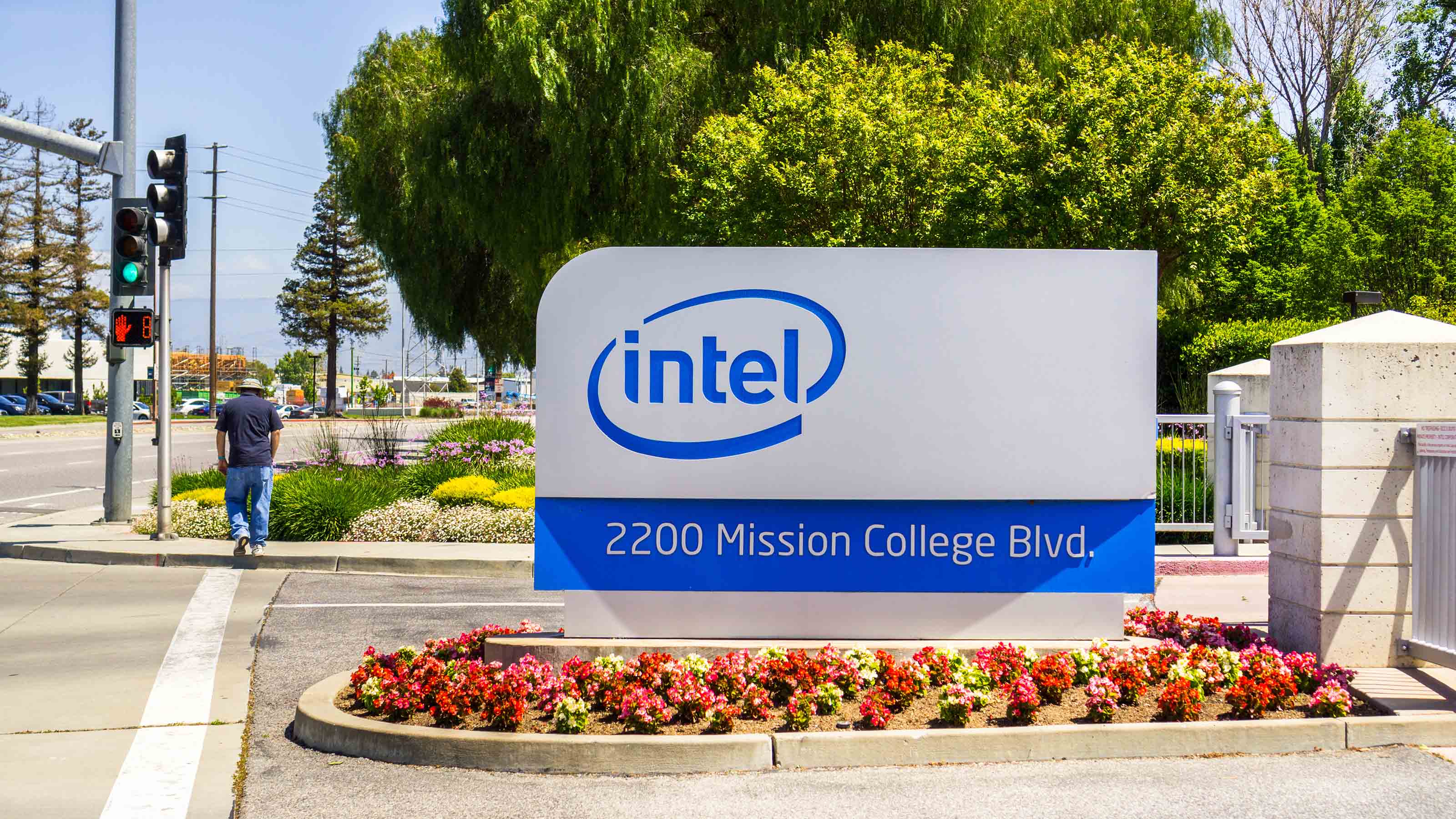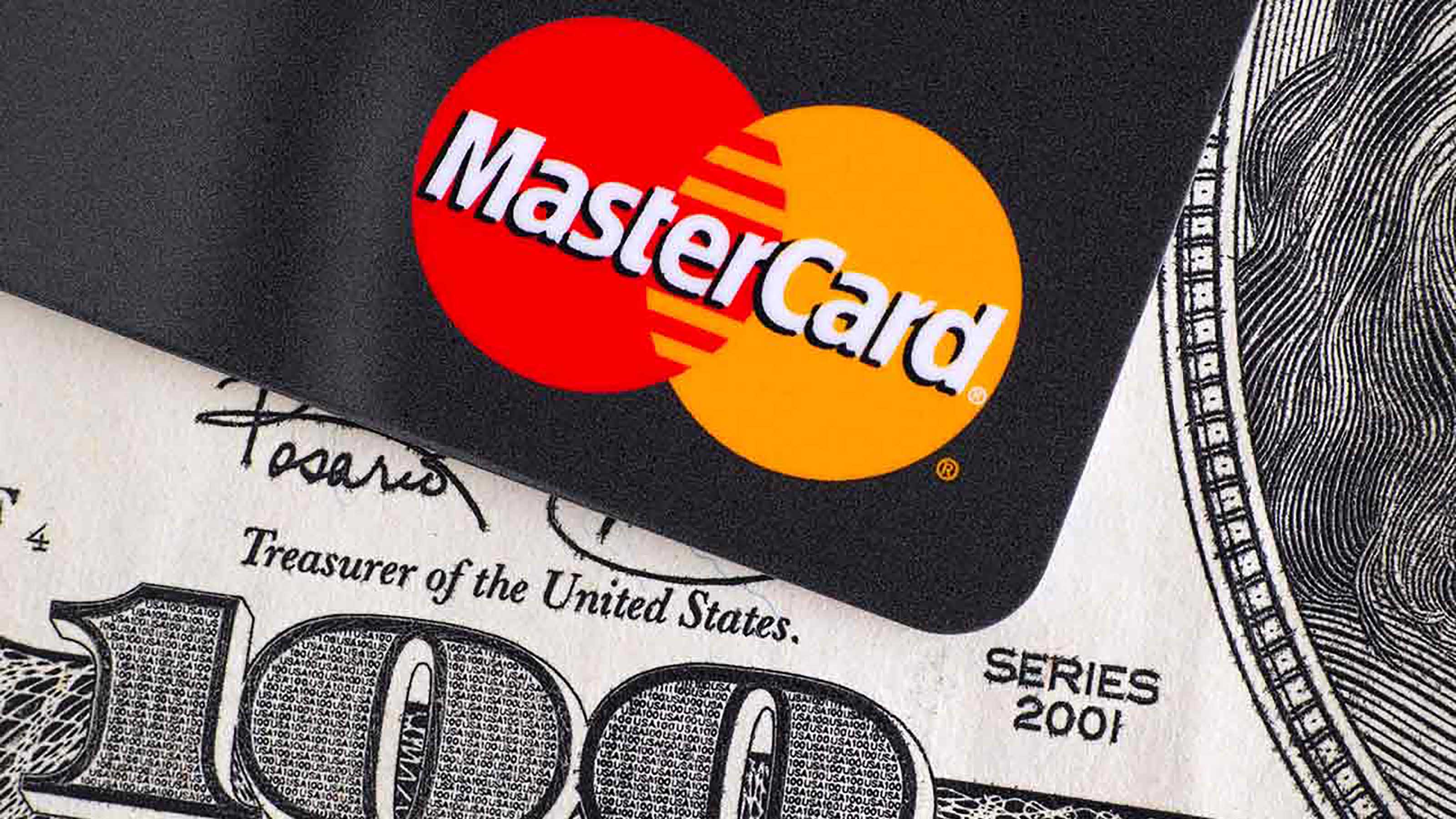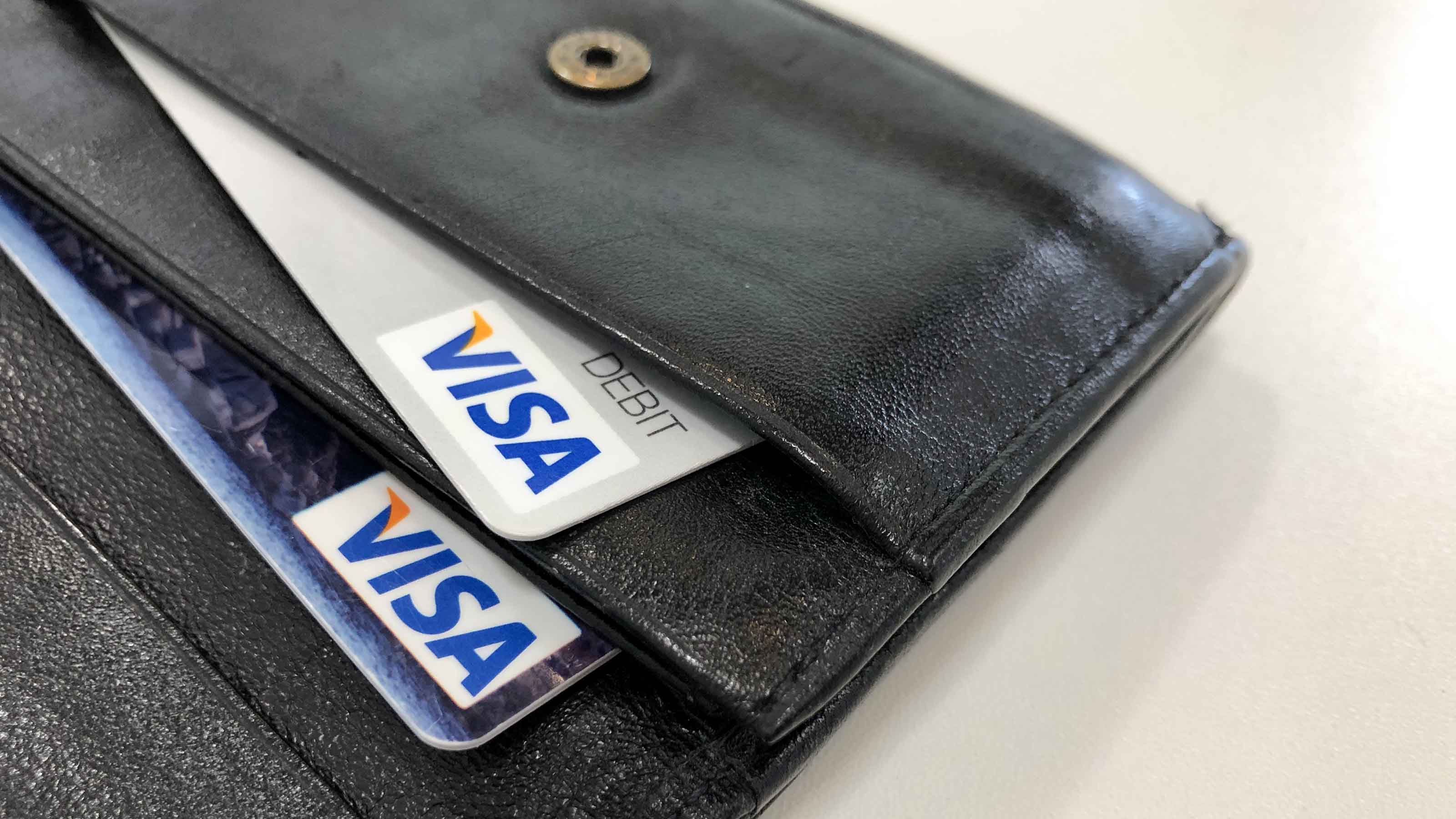Hedge Funds' 25 Top Blue-Chip Stocks to Buy Now
What is the reputed smart money up to lately? We explore the 25 most popular blue-chip stocks among the hedge fund crowd.


Profit and prosper with the best of Kiplinger's advice on investing, taxes, retirement, personal finance and much more. Delivered daily. Enter your email in the box and click Sign Me Up.
You are now subscribed
Your newsletter sign-up was successful
Want to add more newsletters?

Delivered daily
Kiplinger Today
Profit and prosper with the best of Kiplinger's advice on investing, taxes, retirement, personal finance and much more delivered daily. Smart money moves start here.

Sent five days a week
Kiplinger A Step Ahead
Get practical help to make better financial decisions in your everyday life, from spending to savings on top deals.

Delivered daily
Kiplinger Closing Bell
Get today's biggest financial and investing headlines delivered to your inbox every day the U.S. stock market is open.

Sent twice a week
Kiplinger Adviser Intel
Financial pros across the country share best practices and fresh tactics to preserve and grow your wealth.

Delivered weekly
Kiplinger Tax Tips
Trim your federal and state tax bills with practical tax-planning and tax-cutting strategies.

Sent twice a week
Kiplinger Retirement Tips
Your twice-a-week guide to planning and enjoying a financially secure and richly rewarding retirement

Sent bimonthly.
Kiplinger Adviser Angle
Insights for advisers, wealth managers and other financial professionals.

Sent twice a week
Kiplinger Investing Weekly
Your twice-a-week roundup of promising stocks, funds, companies and industries you should consider, ones you should avoid, and why.

Sent weekly for six weeks
Kiplinger Invest for Retirement
Your step-by-step six-part series on how to invest for retirement, from devising a successful strategy to exactly which investments to choose.
Hedge funds as a group have a poor long-term track record, but there's still something irresistible about knowing what the putative smart money has been up to.
Besides, you've got to give them credit where credit is due. Hedge funds as a group might not be generating positive returns in 2022, but hey, at least they're beating the broader market.
Hedging strategies by definition limit upside when stocks are rising, which helps explain the industry's years of underperformance during the bull market. By the same token, however, hedging strategies limit downside when everything is selling off. And goodness knows investors have seen plenty of red on their screens so far this year.
Case in point: the Eurekahedge Hedge Fund Index delivered a total return (price appreciation plus dividends) of -1.6% year-to-date through Jan. 31. That compares with the S&P 500's total return of -5.2% over the same span.
We won't know how hedge funds have adapted to current market turmoil until the next batch of regulatory filings come out in May, but we do know how they were positioned heading into 2022.
Surprise, surprise: Hedge funds were heavily invested in most of the market's biggest and bluest of blue-chip stocks.
Indeed, components of the Dow Jones Industrial Average are heavily over-represented when it comes to hedge funds' favorite stock picks. Fully 13 of the Dow's 30 names rank among the stocks most widely held by hedge funds.
That's partly a function of Dow stocks' massive market capitalizations and attendant liquidity, which creates ample room for institutional investors to build or sell large positions. Big-name blue-chip stocks also carry a lower level of reputational risk for professional money managers. (It's a lot easier to justify holding a large position in a Dow stock than a no-name small-cap if restive clients start grumbling about their returns.)
Be that as it may, almost half these names are not in the famed blue-chip average, and a few of these picks might surprise you. Either way, each hedge-fund favorite is worth a closer look.
Have a look at hedge funds' 25 top blue-chip stocks to buy now. All these names likely appeal to elite funds because of their size, strong track records or outsized growth prospects. But we'll delve into a few specifics that make each blue chip special.
Share prices and related data are as of Feb. 27, unless otherwise noted. Companies are listed in reverse order of popularity with hedge funds, according to data from WhaleWisdom. Analysts' ratings and other data are provided S&P Global Market Intelligence, Morningstar, Refinitiv Stock Reports Plus and YCharts, unless otherwise noted.

25. Cisco Systems
- Market value: $232.8 billion
- Dividend yield: 2.7%
- Analysts' consensus recommendation: 2.17 (Buy)
Cisco Systems (CSCO, $56.04) became slightly less popular with hedge funds in the fourth quarter, but the technology conglomerate still managed to crack the smart money's top 25 most widely held stocks.
Close to 22% of all hedge funds own shares in the networking, cloud and cybersecurity giant, and 1.5% of all hedge funds count CSCO as a top 10 holding, per WhaleWisdom. However, hedge funds' collective net ownership fell by more than 26 million shares from Q3 to Q4. Furthermore, the number of funds closing out their positions in CSCO rose almost 23%, while new positions ticked up just 3.3%.
The end result is that this component of the Dow Jones Industrial Average dropped to No. 25 on our list from No. 22 three months ago.
Perhaps hedge funds were looking to take some profits off their winning bets? CSCO stock added 16.4% in the fourth quarter vs. the S&P 500's gain of 10.7%.
The new year hasn't been as kind to CSCO stock, which is lagging the broader market by a wide margin YTD. Wall Street nevertheless remains bullish, giving shares a consensus recommendation of Buy, albeit with moderate conviction. Of the 29 analysts issuing opinions on CSCO tracked by S&P Global Market Intelligence, nine rate it at Strong Buy, six call it a Buy and 14 have it at Hold.

24. Intel
- Market value: $194.3 billion
- Dividend yield: 3.1%
- Analysts' consensus recommendation: 2.78 (Hold)
Despite years of troubling operating performance and disappointing returns, Intel (INTC, $47.71) is a staple on the list of hedge funds' favorite stocks.
True, the company has been losing market share to competitors. But Intel's central processing units (CPUs) are still found in 84% of desktop PCs and 78% of laptops. INTC furthermore commands roughly 90% of the market for servers, which are in high demand amid the shift to cloud-based computing.
Then there's the Dow stock's massive market cap and attendant liquidity, which allows large investors to buy and sell positions with relative ease.
As such, hedge funds looking for broad tech-sector exposure can hardly avoid the world's biggest chipmaker.
More than a fifth of all hedge funds own INTC stock, essentially in line with Q3 figures. The number of funds initiating positions increased to 36 in Q4 from 21 in the previous quarter, while the number of hedge funds closing positions fell to 24 from 44.
Wall Street is clearly more cautious than the hedge fund crowd, however. Analysts' consensus recommendation for INTC stock stands at Hold – and it's a bearish Hold, to boot. Sell ratings are rare on the Street, and yet of the 41 analysts issuing opinions on INTC, five call it a Sell and two have it at Strong Sell. The remaining ratings break down to seven Strong Buys, four Buys and 23 Hold calls.

23. Abbott Laboratories
- Market value: $215.9 billion
- Dividend yield: 1.5%
- Analysts' consensus recommendation: 1.80 (Buy)
Abbott Laboratories (ABT, $122.41) leaped into the top 25 most popular hedge fund blue chips in Q4, perhaps in anticipation of the broader market's shift toward favoring value names in 2022.
ABT manufactures a wide variety of healthcare goods. Its portfolio includes branded generic drugs, medical devices, nutrition and diagnostic products. Some of its best-known products include Similac infant formulas, Glucerna diabetes management products and i-Stat diagnostics devices.
About 22% of all hedge funds, or 396 in total, have a position in the stock. And although just 0.8% of them counted ABT as a top 10 holding in Q4, that's an increase of two funds vs. the previous quarter. Moreover, the number of hedge funds initiating positions in ABT increased by 26% from Q3 to Q4.
Hedge funds are likely attracted to Abbott Labs’ commitment to returning cash to shareholders. After all, the company has increased its dividend annually for 50 years. Indeed, ABT is a member of the S&P 500 Dividend Aristocrats, an index of 66 best dividend stocks that have raised their payouts for at least 25 consecutive years.
The Street is perhaps even more bullish on Abbott Labs than the hedge fund crowd, giving it a consensus recommendation of Buy, with fairly high conviction. Ten analysis rate ABT at Strong Buy, six say Buy, two call it a Hold and two have it at Sell.

22. Salesforce.com
- Market value: $205.0 billion
- Dividend yield: N/A
- Analysts' consensus recommendation: 1.49 (Strong Buy)
Salesforce.com (CRM, $208.09) was added to the Dow in 2020 when Exxon Mobil (XOM) was defenestrated from the blue-chip barometer. Being tapped for membership in the elite average made the software-as-a-service juggernaut more popular than ever with hedge funds.
But at least some of that interest waned in the most recent quarter.
Hedge funds sold a net of more than 6 million shares in CRM during the three months ended Dec. 31. Although 22% of all hedge funds still owned shares in CRM as of Q4, that was down from 24% in Q3. Meanwhile, the number of hedge funds counting the stock as a top 10 holding declined by nearly a third, to 49 funds from 71 funds in the previous quarter.
Salesforce.com's stock lost 6.3% in the final quarter of 2021 – and plunged more than 15% over the course of two sessions at one point in Q4 – hurt by a disappointing profit forecast and increased competition from cloud rivals Microsoft (MSFT), Amazon.com (AMZN) and Google parent Alphabet (GOOGL).
The Street nevertheless remains resolutely bullish on CRM stock.
Thirty-two analysts rate CRM at Strong Buy, 10 call it a Buy and seven have it at Hold, per S&P Global Market Intelligence. That works out to a consensus recommendation of Strong Buy.
Salesforce, which provides customer relationship management software to enterprise customers, was essentially providing cloud-based services before they were cool. That early mover advantage informs at least part of the bull case on shares.

21. Exxon Mobil
- Market value: $329.5 billion
- Dividend yield: 4.5%
- Analysts' consensus recommendation: 2.54 (Hold)
Hedge funds added a net of nearly 19 million shares in Exxon Mobil (XOM, $77.84) in the fourth quarter. New and increased positions rose substantially, while reduced and closed positions fell apace.
The energy supermajor's stock price has nearly doubled since it was removed from the Dow Jones Industrial Average at the end of August 2020. More recently, XOM is up 43% over the past year, thanks to the relentless rise in crude oil prices.
As the largest listed energy company by market capitalization, Exxon Mobil is an obvious holding for hedge funds looking to bet on the sector – especially when the energy sector as a whole is producing such outsized returns.
And, like all the blue-chip stocks on this list, XOM's massive market value and liquidity makes it a frictionless fit for institutional investors buying and selling large positions.
Happily, investors of all sizes can count on XOM for equity income. Exxon Mobil is a member of the S&P 500 Dividend Aristocrats, having increased its dividend for 39 straight years – and at an average annual growth rate of 6.0% to boot.
Incidentally, XOM's long history of generous dividend growth helped it become one of the 30 best stocks of the past 30 years.
Wall Street isn't generally keen on XOM at current levels, however, giving it a consensus recommendation of Hold. Of the 28 analysts issuing opinions on shares, five rate them at Strong Buy, four say Buy, 18 have them at Hold and one calls them a Sell.

20. Bank of America
- Market value: $363.3 billion
- Dividend yield: 1.9%
- Analysts' consensus recommendation: 2.15 (Buy)
Bank of America (BAC, $45.02) is a natural fit for hedge funds making bets in the financial sector. After all, it's a sprawling, international money-center bank with a massive market cap and abundant liquidity.
It also doesn't hurt that BAC is one of Warren Buffett's favorite stocks. Berkshire Hathaway (BRK.B), the holding company of which Buffett is chairman and CEO, owns more than 1 billion shares. The stake accounts for 13.6% of Berkshire's equity portfolio, or its second-largest holding after Apple (AAPL).
Nearly 23% of hedge funds, or 416 in total, own shares in the nation's second-largest bank by assets. That's up from 396 funds in Q3. The number of hedge funds opening new positions more than doubled vs. the previous quarter, but then the number of funds closing their positions increased by nearly half.
Ultimately, hedge funds sold a net of 40.6 million shares in BAC in Q4.
BAC stock trailed the broader market by roughly 6 percentage points in the final three months of 2021. It's fair to assume that selling pressure on the part of hedge funds didn't help.
But the Street remains mostly bullish on the blue-chip bank stock, giving it a consensus recommendation of Buy, with moderate conviction. Of the 26 analysts issuing opinions on BAC tracked by S&P Global Market Intelligence, 10 rate it at Strong Buy, six say Buy, eight have it at Hold and two call it a Strong Sell.

19. Procter & Gamble
- Market value: $379.3 billion
- Dividend yield: 2.2%
- Analysts' consensus recommendation: 2.22 (Buy)
Procter & Gamble (PG, $158.24) is sort of a must-have stock for large pools of capital looking for exposure to the consumer staples sector.
Not only is this Dow component the largest stock in its sector by market cap, but it's a classic defensive blue-chip name that historically trades with exceptionally low volatility relative to the broader market.
That's partly due to the fact that demand for products such as Charmin toilet paper, Crest toothpaste, Tide laundry detergent and Pampers diapers tends to remain stable in both good times and bad.
PG also happens to be a dividend-growth machine. This member of the S&P 500 Dividend Aristocrats has raised its payout annually for 65 years in a row.
That said, hedge funds collectively sold a net of more than 6 million shares in PG in the fourth quarter. The number of hedge funds with stakes in the company declined as well, albeit by about 1% to 417 from 422 in Q3.
On the other hand, P&G's biggest hedge fund fans appear to have grown more confident in their bullish convictions. The number of hedge funds counting PG as a top 10 holding jumped by more than half, to 32 in Q4 from 21 in Q3.
Either way, PG stock rose 17% in the fourth quarter to beat the S&P 500 by more than 6 percentage points, and the Street sees more outperformance ahead. Analysts' consensus recommendation stands at Buy, consisting of eight Strong Buy calls, four Buys, 10 Holds and one Strong Sell.

18. Merck
- Market value: $192.8 billion
- Dividend yield: 3.6%
- Analysts' consensus recommendation: 2.04 (Buy)
Yet another Dow component, pharma giant Merck (MRK, $76.32) has the size and blue-chip prestige to be an obvious healthcare sector pick for any large institutional investor.
One overhang on Merck’s stock has been the company's reliance on blockbuster cancer drug Keytruda, which will lose patent exclusivity in 2028. But bulls contend Keytruda's future is more than baked into MRK’s share price. They further argue that the market insufficiently values recent and potential acquisitions, and Merck’s drug pipeline, which includes a new coronavirus treatment.
Although Keytruda is indeed "a key growth driver," Argus Research analyst David Toung (Buy) notes that Merck's "COVID-19 antiviral Molnupirarvir will make a substantial contribution in 2022." The analyst also applauds Merck's $11.5 billion acquisition last year of Acceleron Pharma, which strengthens the firm's cardiovascular portfolio. And MRK will likely strike additional pipeline-boosting deals, adds Toung.
The number of hedge funds holding a stake in MRK was unchanged at 421 in Q4. Although hedge funds sold a net of 2.5 million shares, the number of hedge funds initiating positions in MRK increased by more than 65%. Closed positions ticked up by two funds, or 7.7%, from Q3 to Q4, while the number of funds reducing their holdings declined by a little more than 9%.
Of the 24 analysts issuing opinions on MRK, nine rate it at Strong Buy, five say Buy and 10 have it at Hold. That works out to a consensus recommendation of Buy.

17. AbbVie
- Market value: $264.5 billion
- Dividend yield: 3.8%
- Analysts' consensus recommendation: 1.75 (Buy)
Hedge funds upped their collective interest in AbbVie (ABBV, $149.54) in the fourth quarter, purchasing a net of 9.4 million shares.
ABBV is best known for blockbuster treatments such as Humira, a rheumatoid arthritis drug on pace to surpass Lipitor as the best-selling drug of all time. Hedge funds, however, appear increasingly attracted to the pharma company as a value play. AbbVie's pipeline of drugs under development – and its 50-year streak of dividend increases – only add to its appeal.
More than 23% of all hedge funds, or 428, owned shares in ABBV in the most recent quarter, up from 422 funds in Q3. The number of hedge funds reporting ABBV as a top 10 holding, meanwhile, jumped by more than half.
Furthermore, the number of hedge funds initiating a stake in ABBV increased by almost 59%. Funds boosting their stakes rose too. And the number of hedge funds closing or reducing their positions both declined.
In addition to Humira, AbbVie is known for cancer drug Imbruvica and testosterone replacement therapy AndroGel. But bulls say the real future upside in ABBV stock hinges on cancer-fighting and immunology drugs – not to mention the products acquired from Botox-maker Allergan in a $63 billion deal that closed in 2020.
Thirteen analysts rate the stock at Strong Buy, five say Buy, five call ABBV a Hold and one has it at Sell. That works out to a consensus recommendation of Buy.
On a bearish note, Warren Buffett's Berkshire Hathaway has cut its ABBV stake for four consecutive quarters, most recently by 78%.

16. Home Depot
- Market value: $330.7 billion
- Dividend yield: 2.4%
- Analysts' consensus recommendation: 1.79 (Buy)
Dow component Home Depot (HD, $316.65) has long been one of the most popular blue-chip stocks among hedge funds and other investors trying to gain exposure to housing stocks specifically, but also consumer spending in general.
Indeed, more than 23% of all hedge funds held a stake in HD in the fourth quarter. That represents only a small increase over the previous quarter, yet the number of hedge funds counting HD as a top 10 position jumped nearly 77% – to 53 from 30 – from Q3 to Q4.
Moreover, the number of hedge funds initiating new positions more than doubled quarter-to-quarter, while the number of hedge funds closing their positions fell by more than a third. All in all, hedge funds added a net 386,000 shares in Home Depot.
Although the pandemic brought boom times to the nation's largest home improvement retail chain – which has now created difficult year-over-year comparisons – the Street says HD's long-term outlook remains robust.
The Street gives HD a consensus recommendation of Buy, with high conviction. Of the 33 analysts covering the stock tracked by S&P Global Market Intelligence, 17 rate it at Strong Buy, seven say Buy, eight call it a Hold and one has it at Strong Sell.
Lastly, although past performance is no guarantee of future returns, it's still worth noting HD's status as one of the 30 best stocks of the past 30 years.

15. UnitedHealth Group
- Market value: $447.6 billion
- Dividend yield: 1.2%
- Analysts' consensus recommendation: 1.63 (Buy)
Institutional investors looking to make big bets in the healthcare sector can't avoid the gravitational pull of Dow component UnitedHealth Group (UNH, $475.75). With a market value of nearly $450 billion and a 2022 revenue estimate of more than $319 billion, this blue-chip stock is the largest publicly traded health insurer by a wide margin.
Hedge funds as a group reduced their exposure to UNH in Q4 by 4.1 million shares, but 24% of them still have stakes in the company. Indeed, the number of hedge funds with UNH as a top 10 holding increased by 50% to 69, while those starting new positions more than doubled.
True, the number of hedge funds reducing their exposure to UNH increased by nearly a fifth in Q4. But those exiting their positions entirely declined by almost 9%.
Big investors and analysts alike praise UNH on any number of fronts, from its health benefits businesses to its consulting and analytics services.
"We remain impressed by the year-to-year consistency UNH shows as it continues to exceed expectations by navigating the industry's many pitfalls," writes Oppenheimer analyst Michael Wiederhorn, who rates shares at Outperform (the equivalent of Buy). "We continue to believe UNH remains the bellwether in the healthcare services space."
Oppenheimer has plenty of company on the Street, which gives UNH a consensus recommendation of Buy, with high conviction. Fourteen analysts call it a Strong Buy, six say Buy, three have it at Hold and one rates it at Sell.

14. PayPal Holdings
- Market value: $129.3 billion
- Dividend yield: N/A
- Analysts' consensus recommendation: 1.70 (Buy)
It's safe to assume that some of that smart money isn't feeling so bright about PayPal Holdings (PYPL, $110.94) right now.
The number of hedge funds initiating positions in PayPal vaulted 87% in Q4. Collectively, hedge funds purchased a net of 2.9 million shares in the digital payments company in the final quarter of the year.
Those positions have been punished. PYPL stock lost about 60% of its value from the beginning of Q4 2021 through Feb. 22, 2022. Quarterly earnings that missed Wall Street's consensus estimate, a shortfall in user growth, and scaled-back revenue and profit forecasts were to blame.
Not all hedge funds suffered from such bad timing, as 156 cut their stakes in PYPL in Q4, while 53 closed out their positions entirely. Additionally, the number of hedge funds counting PYPL as a top 10 holding fell by almost half, to 38 from 71 in the prior quarter.
The Street is somewhat less bullish on PayPal today than it was a month ago, but its collective optimism remains high. Twenty-six analysts call it a Strong Buy, 11 say Buy, nine have it at Hold and one rates it at Strong Sell, per S&P Global Market Intelligence. That works out to a consensus recommendation of Buy.
But even bulls say it could be awhile before PayPal returns to the market's good graces.
"It will likely take several quarters of better results to restore investor confidence," writes Argus Research analyst Stephen Biggar, who lowered his 2022 profit estimate and price target but maintained a Buy rating on shares.

13. Pfizer
- Market value: $267.9 billion
- Dividend yield: 3.4%
- Analysts' consensus recommendation: 2.26 (Buy)
Pharmaceutical giant Pfizer (PFE, $47.72) was removed from the Dow in 2020, but it remains one of the go-to blue-chip stocks for large institutional investors. After all, it's a classic defensive dividend stock with ample liquidity and a huge market value that gives it outsized influence on the healthcare sector.
And hedge funds did indeed embrace PFE in a big way in Q4, adding a net of 9.1 million shares. The number of hedge funds holding a stake in the pharma company rose to 451 from 439 in Q3, and those counting it among their top 10 positions more than doubled, to 46 in Q4 from 19 in Q3. Moreover, the number of hedge funds initiating stakes rose by more than half, to 61 from 40 in the previous three-month period.
The bottom line is that nearly a quarter of all hedge funds own shares in Pfizer.
The Street is bullish on the name as well, giving PFE a consensus recommendation of Buy – albeit with middling conviction. Eight analysts call it a Strong Buy, one says Buy and 14 have it at Hold.
If nothing else, it's certainly easier to make a bull case based on valuation these days. After all, PFE is off more than 19% for the year-to-date. The drawdown has shares trading at just 6.8 times the Street's 2022 earnings per share (EPS) estimate.
But we'll have to wait until May's 13F filing deadline to see whether hedge funds went bargain hunting in PFE during Q1.

12. Mastercard
- Market value: $360.8 billion
- Dividend yield: 0.5%
- Analysts' consensus recommendation: 1.51 (Buy)
It seems like everyone loves Mastercard (MA, $369.09).
The global payments processor is a favorite of hedge funds and analysts, and no less an eminence than Warren Buffett is a bull too. True, Berkshire Hathaway pared its stake by 7% in the third quarter, but the holding company still owns almost 4 million shares in Mastercard – a position initiated by lieutenant portfolio managers Todd Combs and Ted Weschler. (Buffett has said he wishes he himself had pulled the trigger, and earlier at that.)
Hedge funds, meanwhile, added a net of 1.9 million shares in Q4. Although 25% of all hedge funds have Mastercard in their portfolios, that's down from almost 28% in Q3. And while 3.5% of all hedge funds count MA as a top-10 position, that's off from 3.9% in the previous three-month period.
More bullishly, the number of hedge funds initiating stakes in MA rose almost 24% to 47 in Q4, while the number of funds reducing their holdings fell by 16% to 151. On the other side of the ledger, the number of hedge funds closing their positions rose by more than half, to 64 in Q4 from 41 during the third quarter.
Hedge funds and other Mastercard believers are high on the name thanks to both company-specific strengths and the relentless global adoption of digital transactions.
The Street gives Mastercard stock a consensus recommendation a hair's width short of Strong Buy. Of the 37 analysts issuing opinions on MA, 22 rate it at Strong Buy, 11 say Buy and four have it at Hold.

11. Nvidia
- Market value: $603.9 billion
- Dividend yield: 0.07%
- Analysts' consensus recommendation: 1.62 (Buy)
Nvidia (NVDA, $241.57) is one of the 30 best stocks of the past 30 years, but you wouldn't know it from recent share performance. NVDA added 42% during the fourth quarter of 2021 alone – only to shed roughly 18% through the first two months of 2022.
The long-term allure of NVDA is easy to understand. Few tech stocks offer so much exposure to so many emerging technologies and applications. NVDA's high-powered graphics processing units (GPUs) drive everything from PCs and video game consoles to artificial intelligence (AI), data servers, supercomputers, mobile chips and even cryptocurrency mining.
Nearly 26% of all hedge funds, or 470, owned shares in Nvidia at the fourth quarter’s end. That's up from 25%, or 435, in the third quarter. Meanwhile, more than 5% of all hedge funds, or 95, had the stock as a top 10 holding, up from 4%, or 70 funds, in Q3. The number of hedge funds starting new positions increased almost 80%, while the number of funds exiting their stakes declined more than 20%.
Be that as it may, the market is punishing pricey growth stocks like Nvidia indiscriminately these days. We'll have to wait until May to see if hedge funds pounced on shares at ever-cheaper prices – or capitulated to NVDA's bear market.
The Street, for its part, remains a big believer in the name, giving NVDA a consensus recommendation of Buy. Twenty-six analysts rate shares at Strong Buy, eight say Buy, six have them at Hold and two say Sell.

10. Walt Disney
- Market value: $272.2 billion
- Dividend yield: N/A*
- Analysts' consensus recommendation: 1.83 (Buy)
As a sprawling media and entertainment conglomerate – and component of the Dow Jones Industrial Average – Walt Disney (DIS, $149.53) is a natural way for hedge funds to make big bets on a rebounding sector of the economy.
And investors of all sizes have to be pleased with the way DIS has held up in an otherwise dismal year for stocks. Shares are off 3.5% for the year-to-date, vs. an 8% decline for the S&P 500.
Although hedge funds collectively sold a net of 1.1 million shares in Q4, the number of funds initiating stakes jumped by more than two-thirds, to 52 from 31 in Q3. The number of hedge funds reducing their holdings or closing out their positions entirely also fell markedly.
The number of funds holding shares in Disney rose to 484 in Q4 – or 26.5% of all hedge funds – from 481 in Q3.
Bulls are betting on easy comparisons to pandemic-depressed results in Disney's theme parks and filmed entertainment divisions. They're also encouraged by the long-term promise of the firm's Disney+ streaming service.
The Street gives DIS a consensus recommendation of Buy, with fairly high conviction. Of the 29 analysts issuing opinions on the stock tracked by S&P Global Market Intelligence, 14 rate it at Strong Buy, six say Buy and nine have it at Hold. They forecast the media and entertainment colossus to generate average annual EPS growth of almost 40% over the next three to five years.
* Disney suspended its dividend in May 2020 in response to the COVID-19 crisis.

9. Johnson & Johnson
- Market value: $436.5 billion
- Dividend yield: 2.6%
- Analysts' consensus recommendation: 2.18 (Buy)
Whether we're talking hedge funds, mutual funds or other large piles of equity capital, Johnson & Johnson (JNJ, $166.00) is among the must-have blue-chip stocks for any large-cap healthcare portfolio.
Among the arguments in favor of Johnson & Johnson are its diversification, although that's about to change. The multifaceted firm is set to split off its consumer health business – the one that makes Tylenol, Listerine and Band Aid – from its pharmaceuticals and medical devices divisions. The breakup is meant to free the faster-growth, higher-margin parts of J&J from the drag of its more mature, less profitable operations.
Hedge funds may be forgiven if some of them question the wisdom of the move. After all, JNJ became one of the 10 best stocks of the past 30 years as a three-headed giant.
Analysts remain mostly bullish on the name, giving it a consensus recommendation of Buy, but with mixed conviction. Six analysts rate JNJ at Strong Buy, two call it a Buy and nine say Hold.
Hedge funds were incrementally more bullish on the name in Q4, adding a net of more than 682,000 shares. Nearly 27% of all hedge funds, or 491, had stakes in JNJ as of Q4's end, up from 486 hedge funds in the previous quarter. Forty-two hedge funds initiated positions in the company in Q4, up from 26 in Q3, while the number of hedge funds exiting their stakes dropped to 22 in Q4 from 35 in the prior three-month period.
Many of those funds no doubt appreciate the company's commitment to delivering income to investors. This S&P 500 Dividend Aristocrat has increased its payout annually for 59 years.

8. Berkshire Hathaway
- Market value: $713.0 billion
- Dividend yield: N/A
- Analysts' consensus recommendation: 2.50 (Buy)
Berkshire Hathaway's (BRK.B, $319.24) appeal to the hedge fund crowd is obvious. Chairman and CEO Warren Buffett is arguably the greatest long-term investor of all time.
Under the direction of Buffett and partner Charlie Munger, Berkshire Hathaway created $504.1 billion in wealth from January 1990 to December 2020. That works out to an annualized return of nearly 12%, according to Hendrik Bessembinder, a finance professor at the W.P. Carey School of Business at Arizona State University.
The S&P 500 generated an annualized return of just 8% over the same span.
Going back even farther, Argus Research notes that since 1965, Berkshire Hathaway's stock returns more than doubled those of the S&P 500, delivering compound annual growth of 20%, vs.10.2% for the index.
What could make a hedge fund manager's life easier than essentially offloading some of his or her work to Uncle Warren?
True, hedge funds collectively sold a net of 3.5 million shares in Q4 – but more than a few managers probably regret it. BRK.B is up nearly 7% so far in 2002, vs. a decline of roughly 8% for the broader market.
More than 27% of all hedge funds, or 500 in total, owned stakes in BRK.B as of Dec. 31, up from 485 in Q3. Meanwhile, the number of hedge funds initiating positions came to 43 in Q4, up from 16 in the prior period. Lastly, the number of hedge funds closing their positions fell by more than half, to 15 from 32 in the third quarter.
Only three analysts cover Berkshire's B Class shares. But for what it's worth, their consensus recommendation comes to Buy.

7. JPMorgan Chase
- Market value: $436.9 billion
- Dividend yield: 2.7%
- Analysts' consensus recommendation: 2.38 (Buy)
As the nation's largest bank by assets – and a component of the Dow Jones Industrial Average – JPMorgan Chase (JPM, $147.97) exerts an almost irresistible pull on large institutional investors such as hedge funds.
Just have a look at the stats. As of Dec. 31, nearly 28% of all hedge funds, or 507 in total, owned shares in JPM. New positions rose by nearly three-quarters, to 47 hedge funds from 27 hedge funds in Q3. The number of hedge funds increasing their stakes rose 10%, while those reducing or closing their positions fell vs. Q3.
However, hedge funds did sell a net of 2.1 million shares in Q4, and the percentage of hedge funds with JPM as a top 10 holding slipped to 3.7% from more than 5% in the previous three-month period.
The bottom line is that the smart money still very much likes the sprawling money center bank. The Street, for its part, is somewhat less bullish. Although the pros give this blue chip a consensus recommendation of Buy, conviction is highly mixed.
Of the 26 analysts issuing opinions on the financial stock tracked by S&P Global Market Intelligence, seven call it a Strong Buy, six say Buy and 11 have it at Hold. Most intriguing is that two analysts slap Strong Sell ratings on JPM. Sell recommendations are rare on the Street; Strong Sell recommendations are rarer still.
If it's any consolation to current shareholders, the Street's more pessimistic opinions are mostly based on valuation. Jefferies analyst Ken Usdin, for example, downgraded JPM stock to Hold from Buy in mid-February, citing "limited upside given a still-premium multiple," among other factors.

6. Visa
- Market value: $460.0 billion
- Dividend yield: 0.7%
- Analysts' consensus recommendation: 1.51 (Buy)
Few blue-chip stocks get higher marks from analysts, hedge funds and even Warren Buffett than Visa (V, $219.27). That's because the world's largest payments network has unique advantages in a world that's ditching cash in favor of digital transactions.
"We are highly attracted to Visa's powerful brand, vast global acceptance network and strong business model," writes Oppenheimer analyst Dominick Gabriele (Outperform). "The company is well positioned to benefit from the long-term secular shift from paper currency (cash/check) to plastic (electronic payments), consumer spending growth and increased globalization."
Visa's privileged position in the payments revolution helps explain why hedge funds bought a net of 17.1 million shares in the fourth quarter. Nearly 28% of all hedge funds maintain stakes in the firm, and more than 4.1% of all hedge funds have Visa as a top-10 holding.
Although the number of hedge funds closing their Visa bets rose to 52 in Q4 from 41 in the prior quarter, the number of hedge funds initiating stakes rose 150%, to 60 from 24 in Q3.
And, like a number of hedge funds' favorite stocks, Visa happens to be one of the 30 best stocks of the past 30 years.
Analysts' consensus recommendation stands just shy of Strong Buy, with 21 Strong Buy ratings, 10 Buys and four Hold calls. They expect the company to generate average annual EPS growth of 18.6% over the next three to five years, per S&P Global Market Intelligence.

5. Apple
- Market value: $2.69 trillion
- Dividend yield: 0.5%
- Analysts' consensus recommendation: 1.60 (Buy)
It's only natural that hedge funds love Apple (AAPL, $164.85). The Dow component and world's largest publicly traded company isn't just a cornerstone of the tech sector, but of the broader market as well.
It's also by far and away Warren Buffett's favorite stock, comprising nearly 48% of Berkshire Hathaway's stock portfolio.
"I don't think of Apple as a stock," Warren Buffett has said about Apple. "I think of it as our third business."
Hedge funds are equally adoring of Apple. More than 34% of them, or 626, own AAPL, and 19% have it as a top 10 holding. The number of hedge funds initiating stakes in Q4 more than doubled to 59 from 27 in Q3. Funds increasing their holdings ticked up, while the number of hedge funds closing their positions fell to 24 from 45 in the previous quarter.
Buffett and other bulls contend that Apple's ecosystem of products and services – and the fantastic brand loyalty they inspire – set it up for years of market-beating returns. Twenty-seven analysts rate AAPL at Strong Buy, seven say Buy, eight call it a Hold and one rates it at Sell, per S&P Global Market Intelligence.
Hedge funds no doubt also appreciate the way Apple lavishes cash on shareholders. Apple returned more than 100% of its free cash flow to investors in each of the past four fiscal years, primarily through share repurchases. For good measure, Apple also hiked its dividend by 7.3% in 2021.
Lastly, we would be remiss not to mention that Apple stock has been the greatest creator of shareholder wealth in the world over the past 30 years.

4. Meta Platforms
- Market value: $572.9 billion
- Dividend yield: N/A
- Analysts' consensus recommendation: 1.66 (Buy)
Facebook parent Meta Platforms (FB, $210.48) remained extremely popular with hedge funds as of Dec. 31, but it's doubtful the social media giant will feature as prominently on this list when we update it in May.
FB stock has plunged 35% since its disastrous fourth-quarter earnings report of early February, wiping out in excess of $300 billion in market cap. It's safe to assume that more than a few hedge funds participated in the selling.
Changes to Apple's iOS privacy settings are clobbering Meta's core advertising business, and FB users are fleeing its platforms for the likes of TikTok and other rivals. Making matters worse, Meta issued a dismal outlook. The fact that the company is plowing billions of dollars into the metaverse – a perhaps decade-long project with no guarantee of a payoff – has upended sentiment on the name.
Interestingly, at least some hedge funds appear to have anticipated this regime change. As a group, hedge funds sold a net of more than 41 million shares in Meta in the fourth quarter. The number of hedge funds holding FB stock fell to 641, or 35% of all hedge funds, from 669, or 38%, in Q3. Hedge funds counting FB as a top 10 holding declined as well.
Although new positions rose to 68 hedge funds in Q4 from 36 in the prior quarter, hedge funds closing their positions vaulted to 77 from 48.
Meta suffered a series of analyst downgrades in February, but the Street still gives it a consensus recommendation of Buy, with high conviction to boot. Of the 53 analysts issuing opinions on FB tracked by S&P Global Market Intelligence, 32 rate it at Strong Buy, eight say Buy, 12 call it a Hold and one says Sell.

3. Alphabet
- Market value: $1.78 trillion
- Dividend yield: N/A
- Analysts' consensus recommendation: 1.31 (Strong Buy)
It should come as no surprise that hedge funds are big believers in Google parent Alphabet (GOOGL, $2,689.19).
Nearly 36% of all hedge funds, or 653 in total, owned this blue-chip tech stock as of Dec. 31, up from 636 hedge funds in the third quarter. Of those hedge funds, almost 14%, or 250, counted GOOGL among their top 10 holdings, down from 253 in the previous quarter.
New positions nearly doubled, to 67 hedge funds from 35 in Q3, and the number of hedge funds increasing their stakes rose too. The number of hedge funds closing or reducing their holdings also fell in Q4 vs. Q3. Collectively, however, hedge funds were net sellers of GOOGL stock, albeit by a measly 134,238 shares.
The bull case on Alphabet is pretty easy to sum up. Thanks to its domination in search and other web services, Google is the prime beneficiary of the relentless growth in digital advertising spending.
"While Alphabet has often been criticized as a 'Johnny One Note' for its dependence on digital advertising, the powerful ramp-up in digital advertising as economies have reopened, combined with Google's dominant position, has certainly been a financial plus that shows little sign of weakening," writes Argus Research analyst Joseph Bonner (Buy).
The Street concurs with Argus' take, giving GOOGL a rare consensus recommendation of Strong Buy. Thirty-four analysts call the stock a Strong Buy, 13 say Buy and one has it at Hold.
Like a number of names on this list, Google is also one of the best 30 stocks of the past 30 years.

2. Amazon.com
- Market value: $1.57 trillion
- Dividend yield: N/A
- Analysts' consensus recommendation: 1.28 (Strong Buy)
Amazon.com (AMZN, $3,075.77), with its massive market value and dominance in e-commerce, routinely ranks among hedge funds' very favorite blue-chip stocks.
Indeed, 40% of all hedge funds, or 730, owned AMZN as of the fourth quarter’s end. That's up from 681 hedge funds in Q3. But the bullishness hardly stops there.
The number of hedge funds initiating stakes in the tech and retailing colossus rose more than tripled, to 110 from 34 in the prior three-month period. Hedge funds increasing their holdings rose too. Meanwhile, the number of hedge funds exiting their stakes tumbled to 43 from 74, and those that reduced their holdings fell to 204 in Q4 from 247 in Q3.
All told, hedge funds were net buyers of 1.4 million AMZN shares in the final quarter of 2021.
Even Warren Buffett is in on the act. Berkshire Hathaway has been an Amazon shareholder since 2019.
The Street gives Amazon a rare Strong Buy consensus recommendation, and with high conviction at that. Of the 50 analysts issuing opinions on the stock tracked by S&P Global Market Intelligence, 36 say Strong Buy and 14 rate it at Buy.
It's fair to assume that hedge funds are impressed by this already massive company's ability to defy the law of large numbers. Consider that Amazon has a market value of $1.57 trillion. And somehow the company is still forecast to generate average annual EPS growth of nearly 28% over the next three to five years.

1. Microsoft
- Market value: $2.23 trillion
- Dividend yield: 0.8%
- Analysts' consensus recommendation: 1.34 (Strong Buy)
Quarter after quarter, Microsoft (MSFT, $297.31) routinely ranks as hedge funds' top blue-chip stock to buy.
Nearly 42% of all hedge funds, or 761 in total, own shares in this juggernaut of the Dow Jones Industrial Average. That's up from 741 hedge funds in Q3. More than a quarter of all hedge funds, or 458, have MSFT as a top 10 holding, up from 416 hedge funds in Q3. Hedge funds initiating stakes rose to 68 in Q4 from 50 in the previous three-month period, but then those closing their positions rose to 31 from 19 in Q3.
The number of hedge funds reducing their exposure to MSFT ticked up as well, while the number increasing their holdings was essentially unchanged.
The bottom line is that hedge funds sold a net of 25.7 million shares in Microsoft in Q4.
What gives Microsoft the edge over Apple when it comes to hedge funds' interest is its overwhelming success in cloud services with products such as Azure and Office 365. Analysts say companies' digital transformation to cloud services represents a $1 trillion total addressable market – a market MSFT is especially well positioned to exploit.
Microsoft also gets a rare Strong Buy consensus recommendation, making it Wall Street's highest rated Dow stock, according to S&P Global Market Intelligence. Thirty-two analysts say Strong Buy, 14 call it a Buy and one has it at Hold.
Microsoft also happens to be the second-best stock of the past 30 years, having created $1.91 trillion in shareholder wealth between 1990 and 2020.
Profit and prosper with the best of Kiplinger's advice on investing, taxes, retirement, personal finance and much more. Delivered daily. Enter your email in the box and click Sign Me Up.

Dan Burrows is Kiplinger's senior investing writer, having joined the publication full time in 2016.
A long-time financial journalist, Dan is a veteran of MarketWatch, CBS MoneyWatch, SmartMoney, InvestorPlace, DailyFinance and other tier 1 national publications. He has written for The Wall Street Journal, Bloomberg and Consumer Reports and his stories have appeared in the New York Daily News, the San Jose Mercury News and Investor's Business Daily, among many other outlets. As a senior writer at AOL's DailyFinance, Dan reported market news from the floor of the New York Stock Exchange.
Once upon a time – before his days as a financial reporter and assistant financial editor at legendary fashion trade paper Women's Wear Daily – Dan worked for Spy magazine, scribbled away at Time Inc. and contributed to Maxim magazine back when lad mags were a thing. He's also written for Esquire magazine's Dubious Achievements Awards.
In his current role at Kiplinger, Dan writes about markets and macroeconomics.
Dan holds a bachelor's degree from Oberlin College and a master's degree from Columbia University.
Disclosure: Dan does not trade individual stocks or securities. He is eternally long the U.S equity market, primarily through tax-advantaged accounts.
-
 Dow Adds 1,206 Points to Top 50,000: Stock Market Today
Dow Adds 1,206 Points to Top 50,000: Stock Market TodayThe S&P 500 and Nasdaq also had strong finishes to a volatile week, with beaten-down tech stocks outperforming.
-
 Ask the Tax Editor: Federal Income Tax Deductions
Ask the Tax Editor: Federal Income Tax DeductionsAsk the Editor In this week's Ask the Editor Q&A, Joy Taylor answers questions on federal income tax deductions
-
 States With No-Fault Car Insurance Laws (and How No-Fault Car Insurance Works)
States With No-Fault Car Insurance Laws (and How No-Fault Car Insurance Works)A breakdown of the confusing rules around no-fault car insurance in every state where it exists.
-
 Dow Adds 1,206 Points to Top 50,000: Stock Market Today
Dow Adds 1,206 Points to Top 50,000: Stock Market TodayThe S&P 500 and Nasdaq also had strong finishes to a volatile week, with beaten-down tech stocks outperforming.
-
 Stocks Sink With Alphabet, Bitcoin: Stock Market Today
Stocks Sink With Alphabet, Bitcoin: Stock Market TodayA dismal round of jobs data did little to lift sentiment on Thursday.
-
 Dow Leads in Mixed Session on Amgen Earnings: Stock Market Today
Dow Leads in Mixed Session on Amgen Earnings: Stock Market TodayThe rest of Wall Street struggled as Advanced Micro Devices earnings caused a chip-stock sell-off.
-
 Nasdaq Slides 1.4% on Big Tech Questions: Stock Market Today
Nasdaq Slides 1.4% on Big Tech Questions: Stock Market TodayPalantir Technologies proves at least one publicly traded company can spend a lot of money on AI and make a lot of money on AI.
-
 Fed Vibes Lift Stocks, Dow Up 515 Points: Stock Market Today
Fed Vibes Lift Stocks, Dow Up 515 Points: Stock Market TodayIncoming economic data, including the January jobs report, has been delayed again by another federal government shutdown.
-
 Stocks Close Down as Gold, Silver Spiral: Stock Market Today
Stocks Close Down as Gold, Silver Spiral: Stock Market TodayA "long-overdue correction" temporarily halted a massive rally in gold and silver, while the Dow took a hit from negative reactions to blue-chip earnings.
-
 Nasdaq Drops 172 Points on MSFT AI Spend: Stock Market Today
Nasdaq Drops 172 Points on MSFT AI Spend: Stock Market TodayMicrosoft, Meta Platforms and a mid-cap energy stock have a lot to say about the state of the AI revolution today.
-
 S&P 500 Tops 7,000, Fed Pauses Rate Cuts: Stock Market Today
S&P 500 Tops 7,000, Fed Pauses Rate Cuts: Stock Market TodayInvestors, traders and speculators will probably have to wait until after Jerome Powell steps down for the next Fed rate cut.
